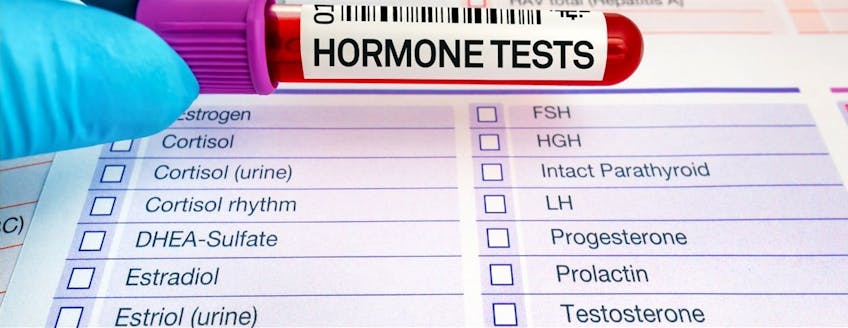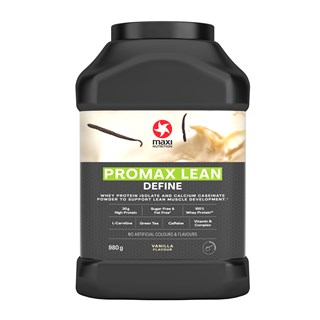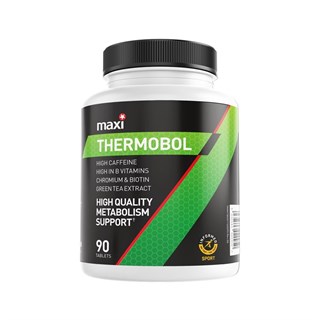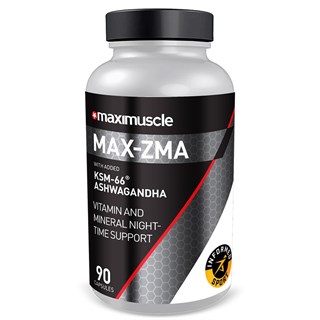The Endocrine System – Part 4
The last in this 4 part series of articles on the endocrine system. In the words of the 90’s pop group Salt-N-Pepa, “Let’s talk about sex”. The reproductive hormones, Oestrogen, Progesterone and Testosterone play a much bigger role that just reproduction, but there’s a fair amount of mis-information or myths surrounding these hormones and their actions. I’m Gareth Nicholas, MaxiNutrition Performance Nutritionist and here’s my thoughts and understanding based on the research.

- Oestrogen – The main female reproductive hormone. Essential for ovulation, bone strength, muscle strength, breast development, libido and fat storage. Oestrogen levels vary through the menstrual cycle and fall following the menopause. Imbalances in oestrogen, both too little and too much can cause weight gain. With its method of action, too much oestrogen will lead to weight gain; an anecdotal consequence to HRT. Although there’s some evidence that HRT can increase your resting metabolic rate and help slow or reverse the menopausal weight gain. Men also produce oestrogen, but at much lower concentrations. Oestrogen in men plays a critical role in libido, erectile function and sperm production.
Fact – Neither soy or isoflavone intake affects male reproductive hormones, which should negate any talk that soy may feminise men (meta-analysis of 41 studies, 2020). For women, the dietary influence and relationship of oestrogen is more complicated due to the various life stages: puberty, adulthood, perinatal, menopausal and post-menopausal.
- Progesterone – An endogenous steroid hormone involved in menstrual cycle and helps to maintain the early stages of pregnancy. Following an egg release during ovulation, the follicle closes to form a natural cyst – the corpus lutem. This is the main site for progesterone production and release, although the ovaries also produce a small amount of progesterone. Progesterone prepares the body for pregnancy, but if the egg is not fertilised, the corpus lutem breaks down, progesterone falls and the menstrual cycle begins. Progesterone alone or combined with oestrogen is taken by women as an oral contraceptive, preventing ovulation; essentially tricking the body to think that ovulation has already taken place and thickening the mucus layer around the neck of the womb, preventing sperm in reaching the egg.
Perhaps discussed to a lesser extent but men also produce progesterone. Primarily as the precursor to testosterone, but also to counteract the oestrogen effects on the male body. Research in nutrition and the inter- relation with progesterone is sparse, but suggestions that consuming foods that contain zinc, vitamin C, B vitamins and magnesium all help to support healthy progesterone levels.
- Testosterone – The primary male reproductive and anabolic hormone. Essential for libido, bone mass, fat distribution, red blood cells, sperm production, muscle mass and strength. A small amount of testosterone is used to create oestradiol (the principal form of oestrogen). As men age, both testosterone and oestradiol production declines. Interestingly, many previous testosterone attributed deficiency symptoms may actually be as a consequence to low oestradiol rather than testosterone. Despite strong association between testosterone and muscle growth, it is in fact the positive effect testosterone has on muscle protein synthesis (anabolic) along with adequate protein to promote muscle growth. Women also produce testosterone but at much lower concentrations. This is to support structural growth including the reproductive tissues, bone and muscle mass.
Resistance exercise can induce increases in testosterone, although a higher response is reported in men versus women. There is still huge gaps in the research understanding of the relationship between the diet and testosterone, but a general consensus is that a diet high in protein and fat, along with suitable levels of vitamin D, zinc and magnesium are all positively linked, whilst low energy intakes negatively affect testosterone production.
In summary
In cases where a hormonal deficiency exists there is little evidence to suggest that nutritional changes will aid in reversing a deficiency. However, as with all things medical, prevention is always better than a cure. What we do know, is that a healthy well balanced, nutrient dense, packed with a range of vitamins and minerals will support healthy hormone production. Exercise more, Eat Well and Live better.
















